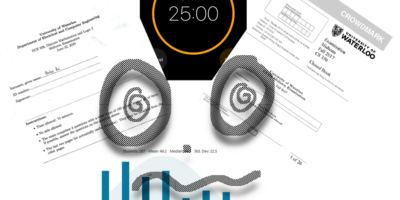For most university students, the ELPE was the first exam they wrote at any sort of post-secondary level. The unfortunate truth of it, though, is that for many it was an experience that brings back many unpleasant, dissatisfied feelings — not entirely uncommon for an exam, really. But when taken into perspective, the process of confirming english proficiency should not be as painful as it currently is.
The task the exam sets out is to write a four to five page impromptu essay in sixty minutes, choosing from a (very small) set of topics. Looking at this format, combined with the rubric available online for pre-exam prep makes one think that the exam is not testing or English Language Proficiency as much as it tests for Completion Of a Secondary School English Course (but to be fair, COSSECE is not as catchy of a name).
The failure of multiple native english speakers on an exam designed to test english proficiency clearly indicates an issue in either the marking scheme or exam format. Testing for english proficiency shouldn’t consist of trying to scrounge up a half-hearted opinion on a subject that no one really cares about, and then attempting to flesh out thought-provoking proof to support said half-hearted opinion. It should be focused on application of proper language conventions, grammar usage and sentence structure.
While the focus on many rather particular details in proper essay writing, such as paragraph structure, proper use and construction of thesis statements, and effective use of persuasion techniques, could be argued as a method of testing for preliminary university-level essay writing, it is far too generic and unrefined to be considered effectual. These sort of particulars often pertain to only one or two styles of writing, and unfortunately there are many diverse faculties at the university that require different writing capabilities. The technical writing that those in science and engineering perform is vastly different than the documentation needed for someone in legal studies, or someone working towards a literature major.
If the ELPE were to be improved, it would be logical to replace the single, exam taken en masse with multiple more specific, faculty-directed examinations that vary marking scheme and tasks depending on the writing skills and capabilities expected in each faculty. This would include a variety of different assignments, such as persuasive writing, creative writing, technical writing and descriptive writing, chosen to best suit and fit a particular student demographic.
A complete alternative for the ELPE would be to require a mandatory English course taken in the first semester of university. Again, these courses would ideally be developed for specific faculties (and possibly even individual programs), and count as one mandatory elective in order to graduate. A course could then gauge oral english proficiency in addition to the written variety. In addition, smaller, more manageable assignments could be used to gauge if writing is as adept as needed. The inclusion of both timed and non-timed assessments would also allow those who struggle with time restrictions and high-pressure environments to still have hopes of passing the course, versus outright failing the ELPE due to less-than-ideal writing speeds.
While passing the ELPE represents an important concept and standard that first years must achieve, as language proficiency is an invaluable skill in any career, it is simply not the right means to achieve the desired effect. Improving upon it or replacing it with a mandatory english course would lead to more accurate representations of english skills, and lead to better outreach to those who need extra help using our ridiculously complex language.




Leave a Reply